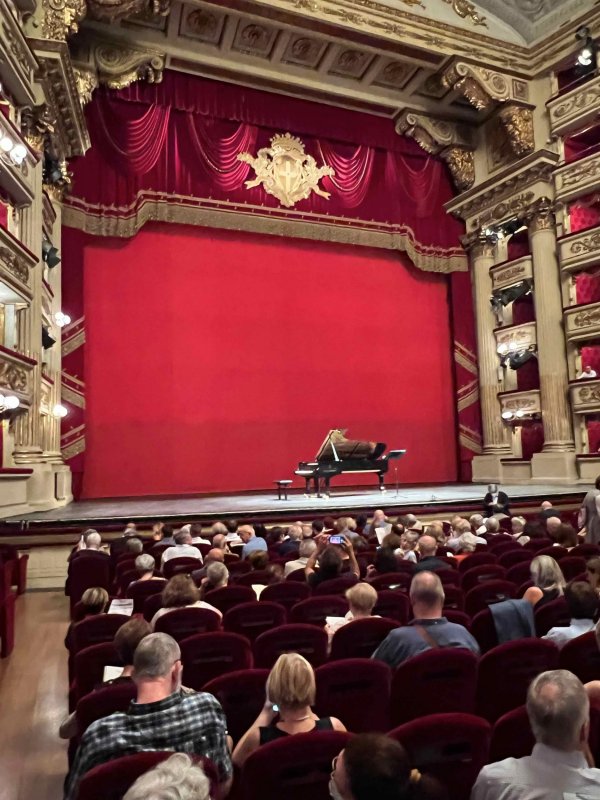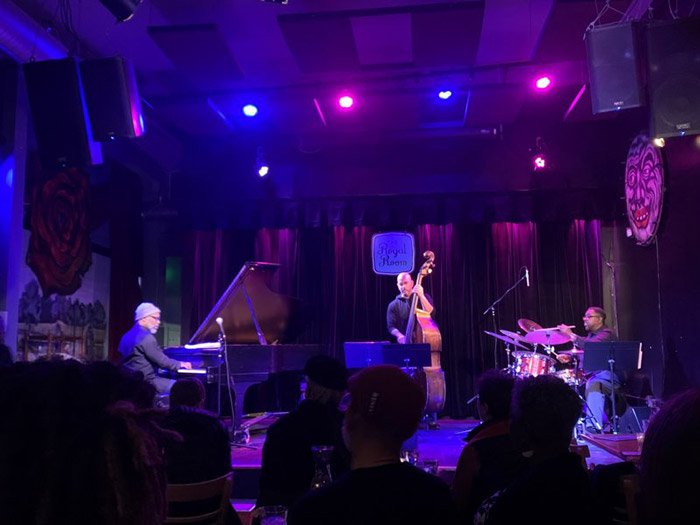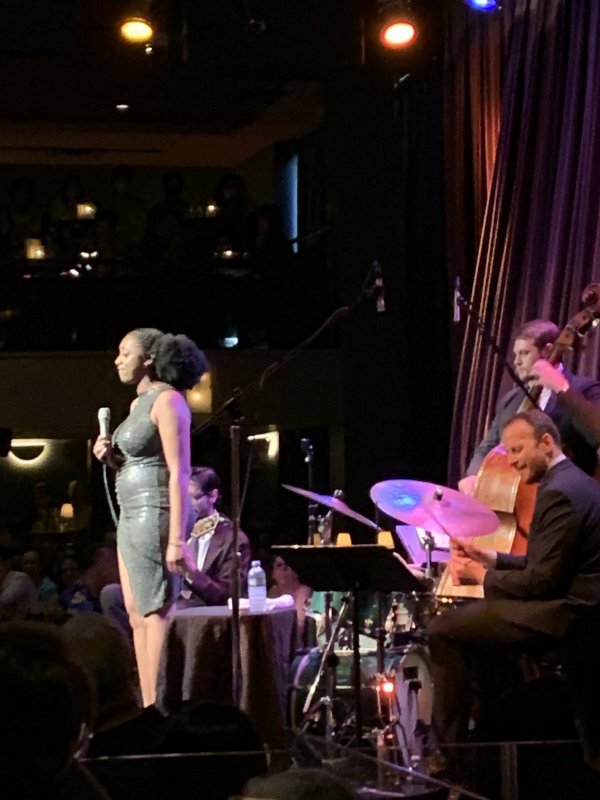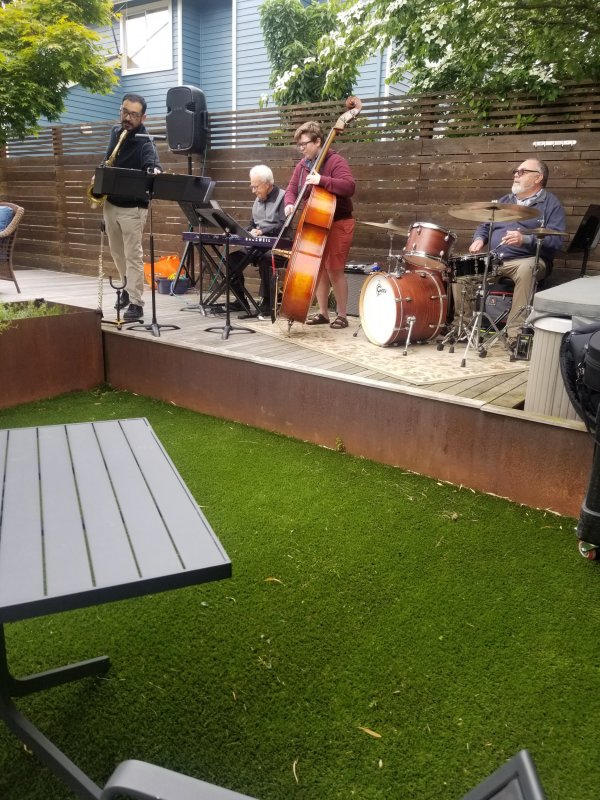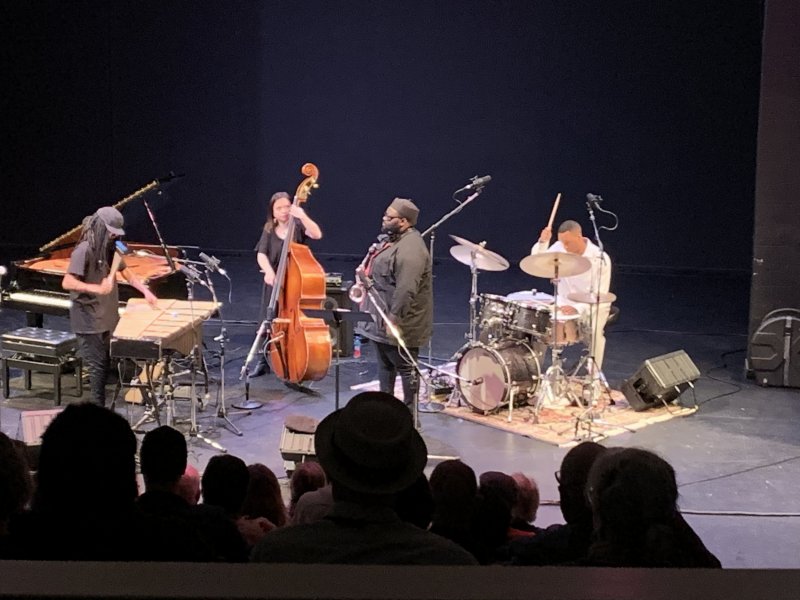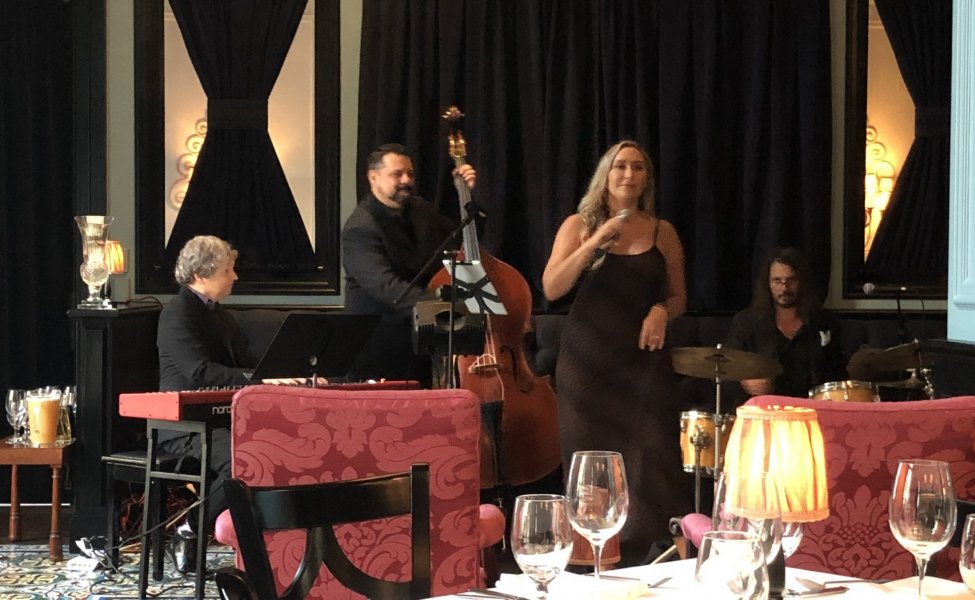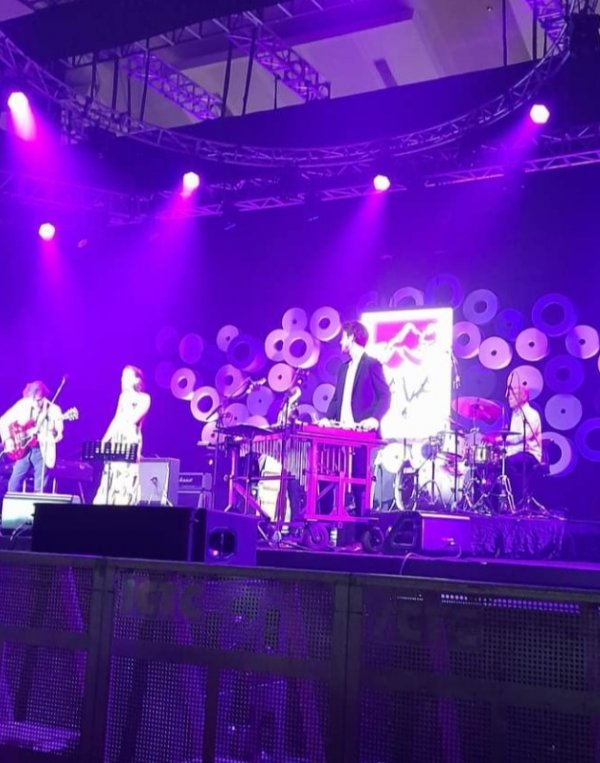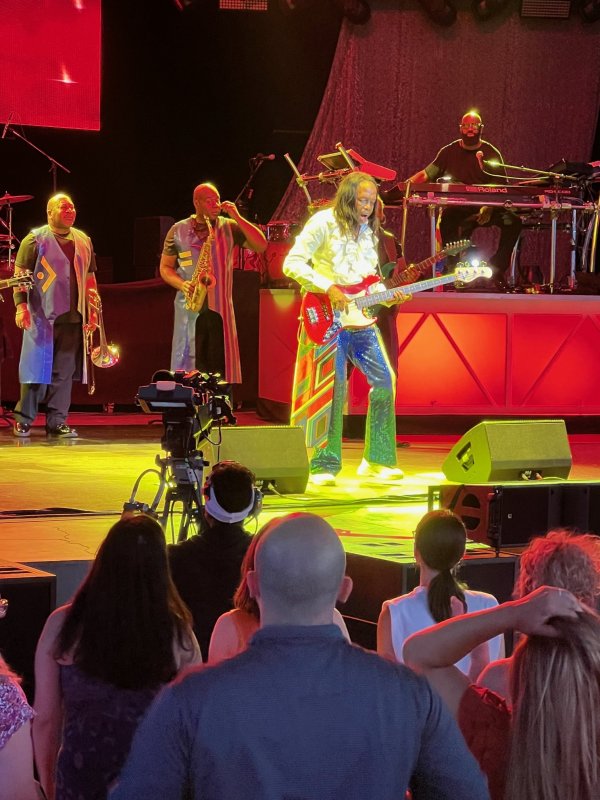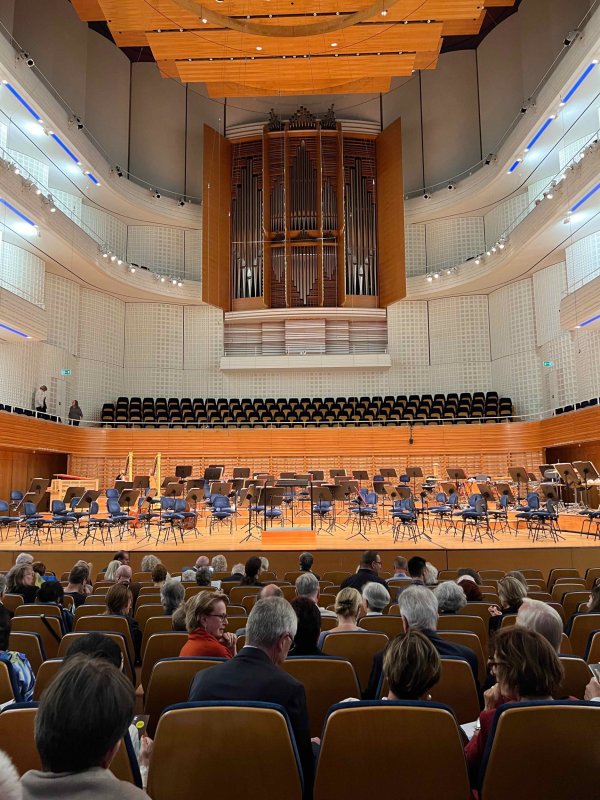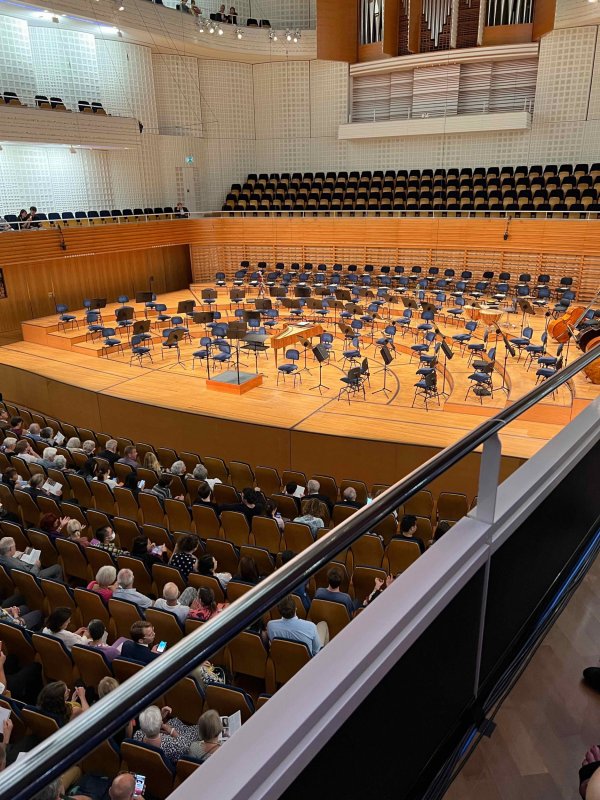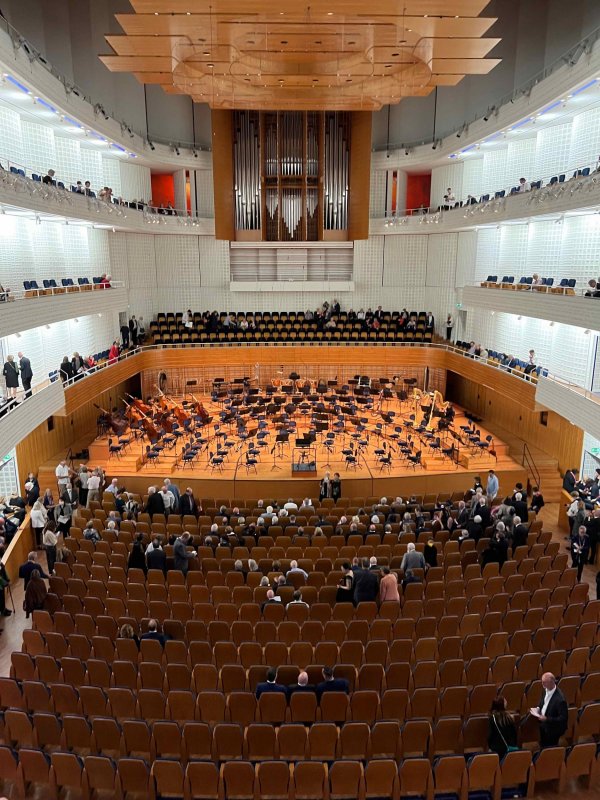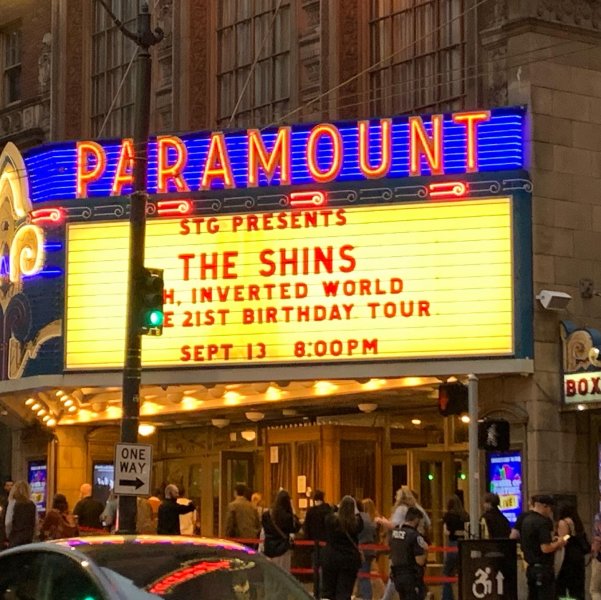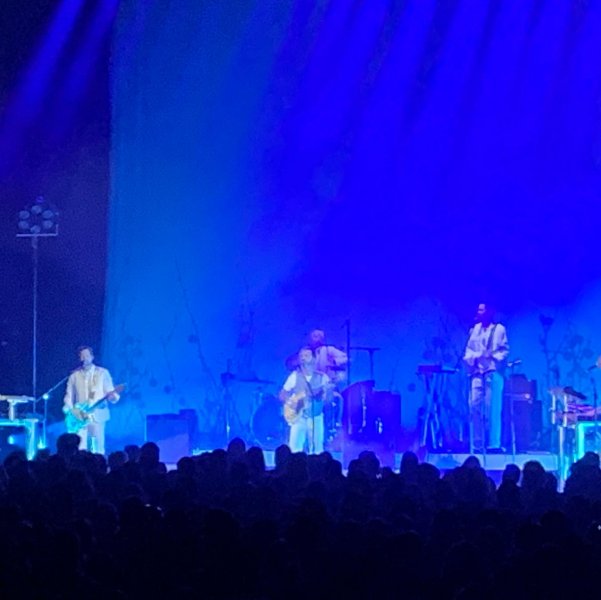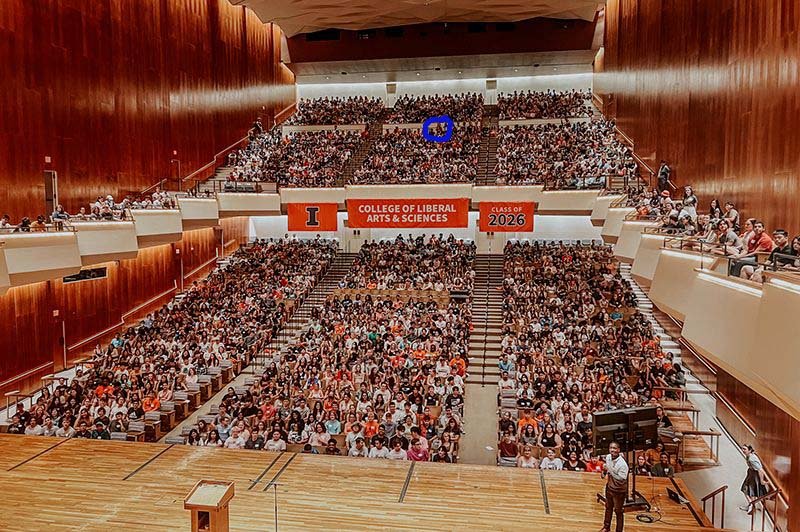Lucerne Music Festival (con't)
The last night was Kirill Petrenko conducting the Berlin Philharmonic performing Mahler’s 7th. The seats for this performance were in the front row, near dead center in the second tier balcony.
.
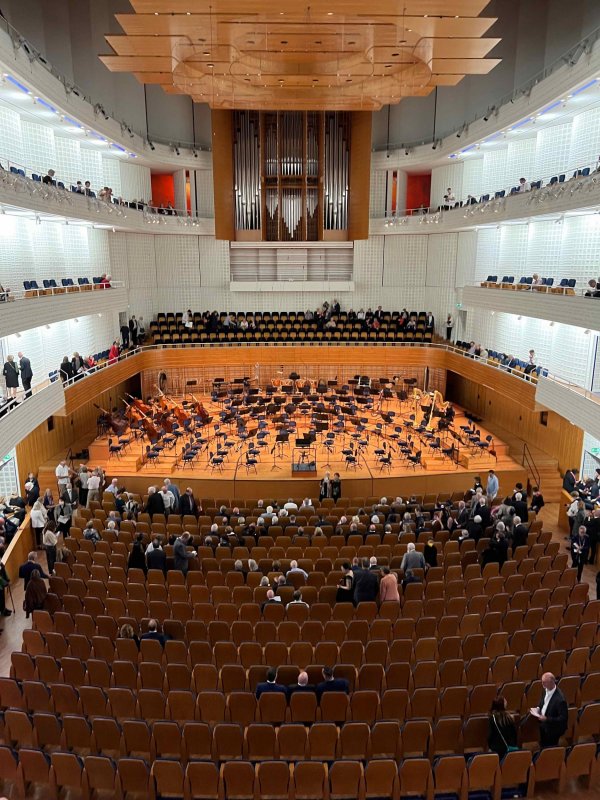
Now we’re talkin! Simply marvelous sound in every respect. Clear, authoritative, spacious, moving, Just beautiful. One might note that the seats from the orchestra for Pappano’s Orchestra subtended a visual angle of about 70 degrees, whereas the seats for M7 subtended a visual angle of about 25 degrees. Yet there was no comparison in the sound. This is noteworthy from the audiophile point of view where we often take great pride in the “soundstage” our systems reproduce. But real world seating puts the idea of “soundstage” into a more proper perspective whereby we should remember that it is but one component of the sound we are trying to reproduce in the home environment and should not be considered a “false prophet” of the goodness or quality of the sound of our systems. The reason is obvious, which is namely, that what we really hear at home is the not necessarily the sound that we hear in a hall but rather, the sound of what the microphones record where the engineers place them. But nobody is recording orchestras from the 2nd or third tiers of the great concert halls of the world. That dog just don’t hunt.
BTW, the differences in sound with seat location in KKL is very analogous to that I have described for Carnegie. See post #1
The first and most famous question asked about Carnegie Hall is “how do you get there?” The origin of the similarly famous answer “practice, practice, practice” is often incorrectly attributed to Jack Bennie. However, the credit really belongs to the violinist Mischa Elman who, after completing...

www.whatsbestforum.com
An interesting observation- I noticed that Petrenko had a padded stool behind him on the podium. He actually spends a good deal of time conducting by leaning back on the stool, with his legs crossed at the ankles, as if he was waiting for a bus (but yet with his arms moving!). Just weird. I’ve never seen this before and somehow doubt they teach this method of conducting at Juilliard or Curtis.
Another observation. 85% of the men in the audience wore jackets and ties and the women were dressed very fashionably. Nobody dresses like that at Carnegie anymore, nor did they dress that way in Dallas, St. Louis, LA or Philly (this goes back many years). All I could think of was that it was very classy and no doubt very much appreciated by the musicians on stage. Is it a Swiss thing? I have no idea, but it’s something I will remember.
All 3 concerts were compelling performances by some of the world’s top ensembles. Not much else to say about that although if I had to deliver one-liners I would say that Rimsky Korsakov’s Scheherazade was the highlight of the first night, Bernie Sander’s unkempt hair (I mean Philippe Herreweghe’s) was the most memorable feature of the second night, and the 5th movement of M7 just rocked the casbah and made me want to throw away my stereo…again.
The Lucerne Music Festival Program
So much for the hall and the music. But I would be remiss if I didn’t mention the most shocking and disappointing aspect of the Festival, which was the programmatic theme highlighted all summer long of this superb festival. When I arrived at the hall for the first night’s concert, I noticed huge posters that advertised the theme of this year’s festival, which was, get ready for it, diversity.

Huge posters displaying this prominent theme graphically were everywhere. I thought to myself, OK, I get it. I’ll just roll with it since it’s impossible to ignore wokeism these days. I figured, just shut up and listen to the music, even though it seemed odd to me that Diversity was the clarion call of a music festival held in the whitest country of the world, with the whitest audiences I have ever seen, and played by 3 of the whitest orchestras on the planet. I wondered, what on earth could they be talking about
as far as the music is concerned? It didn’t take me long to find out.
It began by reading the program notes for the first concert in which the author lamented that Rossini really had no right to misappropriate material from another culture when he wrote, “The Singing Turks” and Ravel wasn’t much different when he took advantage stories from the East to write his song cycle based on the tales of the Arabian Nights. But he then went on to remind us that Rimsky-Korsakov’s musical interpretation of these “diverse” stories were really a distraction in which the “meta-layer of ideal love’ ultimately purges the murderous resolutions of the Sultan. Bet you never heard that one before.
It gets better. The program notes for The Creation were, according to the author (the same guy wrote the program notes for all 3 concerts), not primarily about Haydn’s interpretation of the book of Genesis, but rather, all about diversity. After all, the first part is all about the creation of light, the heavens, the earth and the sea; part 2 is all about the creation of animals and humans, and the third part is about Adam and Eve in the Garden of Eden. What could be more diverse than that? Thus all these mirror the earth’s diversity and that, suggests the author, is what Haydn’s composition was all about. How such a contrived misguided, interpretation could be allowed to be published in a Festival’s program guide is a mystery to me, but there it was.
But don’t even get me started on the drivel this guy wrote about Mahler’s masterful composition by suggesting that it was the diversity of darkness and light that was the foundation for the allegory that Mahler was trying to express in his musical expression of seeking eternal joy. It seemed that this guy was so intent on wanting to make Mahler’s 7th a sophomoric expose of diverse wokeness that it just left me shaking my head wondering if he understood the
real diversity Mahler endured during his life?
I don't know. Maybe it’s just me? Who doesn’t welcome diversity in music and culture? But having it rammed down your throat artificially at a music festival to suggest this was the intent or realm of compositions written centuries ago just seemed too “in your face” for me. What are you gonna do? As I said, just shut up and listen. The beauty of music erases a lot of sins.
Good thing I wound up my European trip at Teatro La Scala two nights ago listening to a lovely recital by Lithuanian soprano Amsik Gregorian. No need to comment on the sound of one of the world’s great opera halls. And the best part? The word “diversity” didn’t appear once in the program featuring the music of Tchaikovsky and Rachmaninoff.
